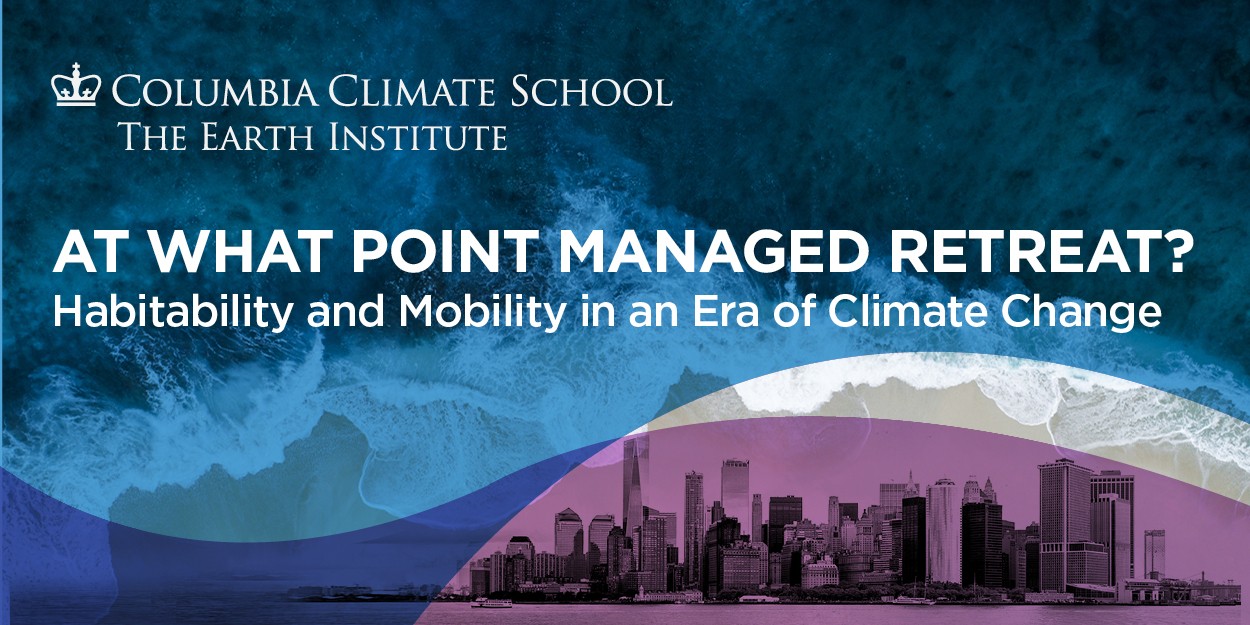Building on the success of the 2019 and 2021 conferences on Managed Retreat, the Columbia Climate School held At What Point Managed Retreat?: Habitability and Mobility in an Era of Climate Change from June 20-23, 2023, at Columbia University. Thank you to everyone who joined us this year, in-person and virtually.
The 2023 conference agenda is available here.
2023 Conference Playlist
The topics of this year’s conference reflected most of the same themes, including a strong emphasis on equity concerns, as in past years, with the addition of some new topics specifically related to this year’s theme:
- Built environment (design and architecture; land use planning; infrastructure; urban planning)
- Buyouts and property acquisition
- Climate and social science for managed retreat (vulnerability; risk; opportunity)
- Communication strategies (storytelling; teaching about managed retreat; arts)
- Community resilience (community organizing; vulnerable populations; social psychology; mental health; crowding out; residents’ perspectives)
- Ecosystem conservation and migration
- Environmental justice and equity
- Finance and economics(market signals; real estate; insurance; capital markets)
- Governance, policy and planning (decision-making; international frameworks; federal management; state programs; local planning; multi-level policy coordination)
- Habitability (defining habitability; degrees of habitability; habitability for what and for whom?)
- Infrastructure Interdependencies
- Legal issues and tools (property rights; zoning & land use; immigration)
- Migration as adaptation/maladaptation (assisted relocation; voluntary movement)
- Receiving areas (growth management and sustainable regional development)
- Sending areas (impacts on those left behind, involuntary immobility / trapped populations)
- Migrants and displaced persons (costs and benefits)
- Non-coastal changes in habitability and mobility (flood and riverine areas; drought and dryland expansion; temperature extremes; wildfire in the urban-wildland interface)
- Private sector perspectives (economic development strategies; corporate relocations; labor market dynamics)
- Receiving community considerations
